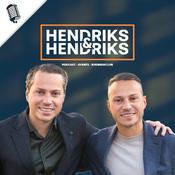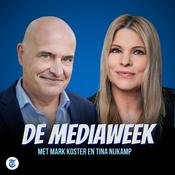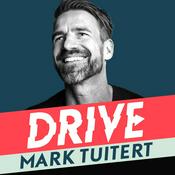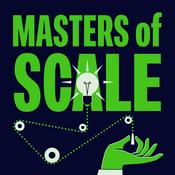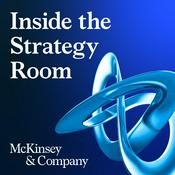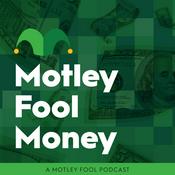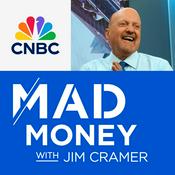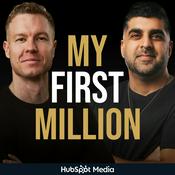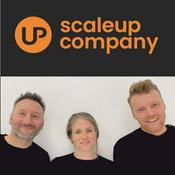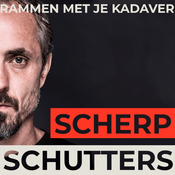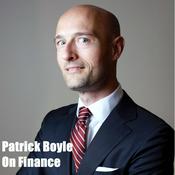170 afleveringen
- In this episode of the Mindful Money Podcast, we speak with Diana Richey, a certified financial planner and nationally recognized personal finance expert. Diana shares her journey from a traditional upbringing with corporate expectations to her transformative life crisis that led her to write 'The Loving Truth About Money.' We discuss how healing inner emotional wounds can transform financial behavior and overall well-being. Touching on Diana's techniques for unblocking subconscious beliefs and manifesting goals, the episode explores the importance of balancing active and resting phases, setting healthy boundaries, and addressing core self-worth issues for achieving personal and financial peace.00:00 Introduction: The Imbalance in Modern Life
01:11 Welcome to the Mindful Money Podcast
01:19 Meet Diana Richey: Financial Planner and Author
02:24 Diana's Journey: From Corporate Life to Personal Crisis
02:45 The Turning Point: Divorce and New Beginnings
03:00 Early Lessons: Money and Entrepreneurship
04:43 The Book: The Loving Truth About Money
09:57 Personal Finance and Emotional Healing
11:08 The Power of Intuition and Healing Modalities
17:54 Balancing Material and Spiritual Goals
20:25 Exploring Different Approaches to Money and Life
21:36 The Three-Part Process for Achieving Goals
23:40 Genuine Self-Worth vs. Performative Abundance
27:16 Setting Boundaries and Self-Worth
32:03 Balancing Productivity and Rest
35:26 Final Thoughts and Personal Insights
ABOUT MINDFUL MONEY:
Do you struggle with money? You’re not alone.
Money is a means, not an end. It’s a necessity of life for sure, but more money does not always guarantee a “good life”. Money enables many aspects of modern life, but as a dominant consideration, it becomes destructive.
The paradox is that more time and energy spent on personal finance does NOT create better outcomes. Unlike many other parts of life, we can’t create better outcomes by being smarter, spending more time, or putting in more effort.
Join Mindful Money author and experienced 40-year investor Jonathan DeYoe as he shares stories from artists, authors, entrepreneurs, and other advisors about how they mindfully minimize their need to think about money and get more out of life.
If you aren’t happy with your finances, feel like money takes more time than it should, or want to place your financial decisions into the broader context of your life, this show is for you.
Each episode will draw the line between the “enough” activities that the academics tell us are additive to family outcomes, and those “little bit more” efforts that take time and sap energy but do NOT improve outcomes.
MINDFUL MONEY RESOURCES:
Website:https://mindful.money
Jonathan DeYoe on LinkedIn: https://www.linkedin.com/in/jonathandeyoe
Mindful Money on X / Twitter: https://x.com/MindfulMoney_Ed
Mindful Money on Facebook: https://facebook.com/mindfulmoneyplan
Mindful Money on Instagram: https://instagram.com/mindfulmoneyplan
Mindful Money on YouTube: https://youtube.com/@mindfulmoney
🎙️Podcast Production by Spoken Podcasts: https://spokenpodcasts.com - Envisioning a Trustworthy Civilization: A Conversation with George Kinder on Fiduciary Principles
In this episode of the Mindful Money Podcast, Jonathan hosts George Kinder to discuss the potential of applying fiduciary principles—putting clients' interests first—beyond financial advice to all institutions, including corporations and governments. George shares his journey and vision for a more humane and trustworthy world, inspired by lessons from the 2008 financial crisis and his global experiences. The conversation dives into systemic changes needed, the feasibility of such transformations, and how these ideas align with and challenge current capitalistic frameworks. George advocates for a grassroots movement driven by these principles, hinting at a future where enhanced trust and ethical standards in all institutions could lead to a more entrepreneurial and sustainable global society.
00:00 Introduction to a Humane and Trustworthy Society
00:48 Welcoming George Kinder and His Vision
00:54 The Fiduciary Standard Beyond Finance
02:09 George's Global Startup and Poetry
03:47 The Three Domains of Freedom
05:24 A Golden Civilization: Global Insights
06:43 Challenges and Philosophical Perspectives
09:35 Defining Fiduciary in All Things (FIAT)
13:15 Human Nature and Systemic Change
17:12 Examples and Practical Applications
21:52 Concerns and Resistance to Change
24:28 Redefining Corporate Greed
26:20 The Role of Truth in Democracy
28:28 Navigating the Complexity of Truth
30:00 The Bell Curve of Truth
32:56 Challenges and Resistance
34:48 The Vision for a Trustworthy World
39:27 Sustainable Business Practices
41:32 Spreading the Mission
46:35 Conclusion and Call to Action
ABOUT MINDFUL MONEY:Do you struggle with money? You’re not alone.Money is a means, not an end. It’s a necessity of life for sure, but more money does not always guarantee a “good life”. Money enables many aspects of modern life, but as a dominant consideration, it becomes destructive.The paradox is that more time and energy spent on personal finance does NOT create better outcomes. Unlike many other parts of life, we can’t create better outcomes by being smarter, spending more time, or putting in more effort.Join Mindful Money author and experienced 40-year investor Jonathan DeYoe as he shares stories from artists, authors, entrepreneurs, and other advisors about how they mindfully minimize their need to think about money and get more out of life.If you aren’t happy with your finances, feel like money takes more time than it should, or want to place your financial decisions into the broader context of your life, this show is for you.Each episode will draw the line between the “enough” activities that the academics tell us are additive to family outcomes, and those “little bit more” efforts that take time and sap energy but do NOT improve outcomes.MINDFUL MONEY RESOURCES:Website: https://mindful.moneyJonathan DeYoe on LinkedIn: / jonathandeyoe Mindful Money on X / Twitter: https://x.com/MindfulMoney_EdMindful Money on Facebook: / mindfulmoneyplan Mindful Money on Instagram: / mindfulmoneyplan Mindful Money on YouTube: / @mindfulmoney 🎙️Podcast Production by Spoken Podcasts: https://spokenpodcasts.com - Episode Summary
In this episode of Mindful Money, I talk with Bart Wilson about the often-overlooked moral dimension of economics. We explore Adam Smith’s forgotten insights on justice and beneficence, how values shape innovation and prosperity, and why genuine wealth is created through collaboration—not extraction. It’s a thoughtful, hopeful conversation about money’s deeper purpose.
Show Notes
Bart J. Wilson is a Professor of Economics and Law and the Donald P. Kennedy Endowed Chair in Economics and Law at Chapman University. He is a member of the Economic Science Institute, with joint tenured appointments in the Argyros College of Business and Economics and the Fowler School of Law. In 2016, he founded the Smith Institute for Political Economy and Philosophy, where he serves as the director. Bart has published papers widely in economics and general science journals, and is the author of Meaningful Economics: Making the Science of Prosperity More Human; The Property Species: Mine, Yours, and the Human Mind; and Humanomics: Moral Sentiments and the Wealth of Nations for the Twenty-First Century.
I talk with Bart about the moral roots of prosperity. We revisit Adam Smith’s Theory of Moral Sentiments and how justice, beneficence, and collaboration make economic growth possible. Bart shares lessons from his farm upbringing, why commerce is more than self-interest, and how innovation thrives when we respect equality and trust. We also discuss AI, the hidden goodness in markets, and why gifts carry obligations that bind communities together. This conversation reframes economics as a profoundly human endeavor—one that can guide us toward more mindful wealth and purpose.
Meaningful Economics: Making the Science of Prosperity More Human: https://www.amazon.com/Meaningful-Economics-Making-Science-Prosperity/dp/0197758150
The Property Species: Mine, Yours, and the Human Mind: https://www.amazon.com/Property-Species-Mine-Yours-Human-ebook/dp/B087JWTSZB
Humanomics: Moral Sentiments and the Wealth of Nations for the Twenty-First Century: https://www.amazon.com/Humanomics-Sentiments-Twenty-First-Cambridge-Economics-ebook/dp/B07JKFLLHS
Chapman University: https://www.chapman.edu
Argyros College of Business and Economics: https://www.chapman.edu/business
Fowler School of Law — https://www.chapman.edu/law
Connect with Bart
Website: https://www.bartjwilson.com/
LinkedIn: https://www.linkedin.com/in/bart-wilson-353bba8/
X / Twitter: https://x.com/bartwilson
Connect with Jonathan
Website: https://mindful.money
Jonathan DeYoe on LinkedIn: https://www.linkedin.com/in/jonathandeyoe
Mindful Money on X / Twitter: https://x.com/MindfulMoney_Ed
Mindful Money on Facebook: https://www.facebook.com/MindfulMoneyPlan
Mindful Money on Instagram: https://www.instagram.com/mindfulmoneyplan
Mindful Money on YouTube: https://www.youtube.com/@MindfulMoney
Mindful Money Resources
For all the free stuff at Mindful Money: https://mindful.money/resources
To buy Jonathan’s first book – Mindful Money: https://www.amazon.com/Mindful-Money-Practices-Financial-Increasing/dp/1608684369
To buy Jonathan’s second book – Mindful Investing: https://www.amazon.com/Mindful-Investing-Outcome-Greater-Well-Being/dp/1608688763
Subscribe to Jonathan’s Weekly Newsletter: https://courses.mindful.money/email-opt-in
Capture the most important benefit of an advisor – behavioral support – without the 1% fee: https://courses.mindful.money/membership
For more complex, one-on-one financial planning and investing support with Jonathan or a member of Jonathan’s team: https://www.epwealth.com/our-team/berkeley/jonathan-deyoe
Subscribe and stay in touch
Website: https://mindful.money
Apple Podcasts: https://podcasts.apple.com/us/podcast/mindful-money/id1606822964
Spotify: https://open.spotify.com/show/27R4mtSA2PjojGtoAsjEvc
Amazon: https://music.amazon.com/podcasts/25ed40d3-eb57-4dda-bad4-c15262fa291c/mindful-money
YouTube: https://www.youtube.com/@MindfulMoney Navigating Politics and Portfolios: Separating Financial Decisions from Election Fears
30-9-2025 | 32 Min.In this episode of Mindful Money, we break down the emotional reactions to elections and why we should separate politics from our portfolios. As election-driven fear and speculation rise, it’s important to understand why making investment decisions based on political headlines is a mistake. Markets react to policies, not personalities, and long-term financial success requires discipline, diversification, and patience. In this episode, we’ll explore both potential risks—like tariffs, inflation, and debt—and possible benefits, such as business growth incentives and deregulation. No single election will make or break your financial future, but your mindset and strategy will.- Over the past two decades, Lindsay has dedicated her career to transforming workplace cultures, leaders, teams, and individuals. She has held progressively larger roles often in fast-growing companies in industries such as advertising, biotech, consumer products, and education. She most recently served as the Head of Talent Development and Inclusion at Kite Pharma, a Gilead company, and is now the Founder and CEO of Barnett Coaching, a boutique coaching and consulting firm.
I talk with Lindsay about her new book, Working Hell to Working Well. Lindsay shares lessons from her two decades in corporate leadership and coaching, offering practical ways to reclaim work-life harmony without waiting for organizational change. We dig into the power of boundaries, role modeling, and mindfulness practices that restore energy and prevent burnout. From “leaving loudly” to walking meetings, Lindsay shows how small, intentional actions can spark cultural change. This conversation is filled with insights on balancing ambition with wellbeing and building workplaces where people can truly thrive.
In this episode:
(00:00) - Intro
(01:22) - Meet Lindsay Barnett
(05:29) – Career pivots and the inspiration behind Working Hell to Working Well
(11:07) – Rethinking work-life harmony: boundaries that actually work
(13:37) – How small signals can spark cultural change
(19:44) – Mindfulness, vulnerability, and the power of taking breaks
(25:29) – What it looks like to role model wellbeing as a leader
(40:50) – One practice every leader needs to prevent burnout
(43:00) – The last thing Lindsay changed her mind about
(44:01) – Where to find and connect with Lindsay
Get full show notes and links at https://mindful.money. Watch the episode on YouTube: https://www.youtube.com/@MindfulMoney.
Meer Zaken en persoonlijke financiën podcasts
Trending Zaken en persoonlijke financiën -podcasts
Over Mindful Money
The Mindful Money Podcast
Do you struggle with money? You’re not alone.
Join Mindful Money author and experienced 40-year investor Jonathan DeYoe as he shares stories from artists, authors, entrepreneurs, and other advisors about how they mindfully minimize their need to think about money and get more out of life. If you aren’t happy with your finances, feel like money takes more time that it should, or want to place your financial decisions into the broader context of your life, this show is for you.
Podcast websiteLuister naar Mindful Money, Hendriks en Hendriks en vele andere podcasts van over de hele wereld met de radio.net-app
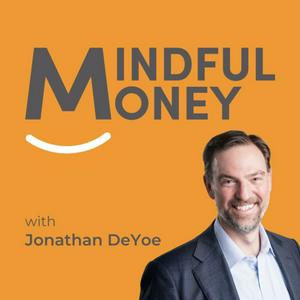
Ontvang de gratis radio.net app
- Zenders en podcasts om te bookmarken
- Streamen via Wi-Fi of Bluetooth
- Ondersteunt Carplay & Android Auto
- Veel andere app-functies
Ontvang de gratis radio.net app
- Zenders en podcasts om te bookmarken
- Streamen via Wi-Fi of Bluetooth
- Ondersteunt Carplay & Android Auto
- Veel andere app-functies


Mindful Money
Scan de code,
download de app,
luisteren.
download de app,
luisteren.

